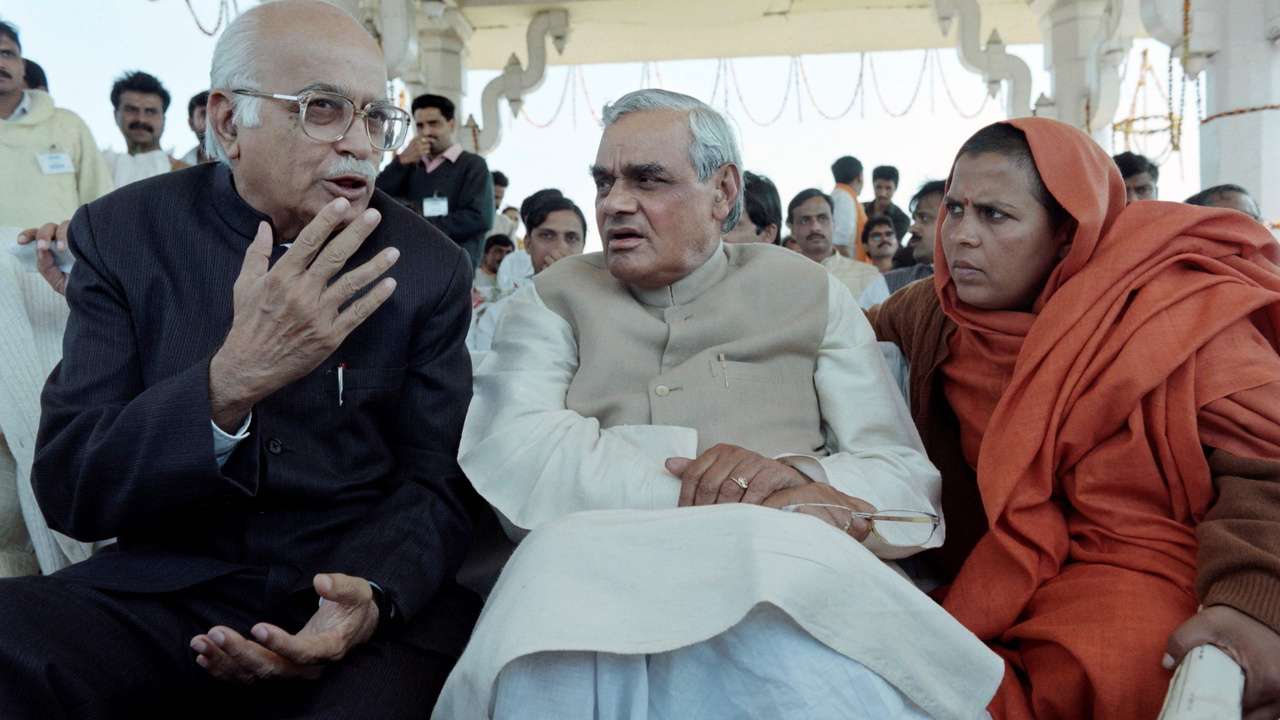
Two years into his third term as PM, Atal Bihari Vajpayee during a Kolkata tour paid a visit to Mamata Banerjee’s house to see her mother. It is not every day that PM of world’s biggest democracy enters a narrow lane to meet a commoner. But Vajpayee walked the extra yards literally to pacify his then Railway Minister, who was putting intense pressure on him to dismiss the Left government in Bengal. Vajpayee was politically astute enough to know that such a move would cement Left rule in Bengal for a few more decades, but he had the acumen not to completely antagonise Mamata Banerjee. This was one of many gestures Vajpayee did throughout his political tenure to get BJP close to the high table, to establish a bi-polar political firmament in a country where Congress ruled the roost for close to half a century. BJP- a party which was virtually razed to ground in 1984 managed to run the first full-term non Congress government in the centre under Atal Bihari Vajpayee, the giant consensus maker.
From National Conference to DMK, from RLD to TDP (outside support), parties of various hues supported the government of a party deemed as a pariah by the liberal circles post the Babri demolition. That essentially was the greatness of Vajpayee who in his own way managed to rise above his party to draw the centrists to the NDA fold. In his success and subsequent failure, was the edifice of modern BJP, with a much more muscular approach towards core right wing polity. His halo roughened out the perceived edges BJP had, making it acceptable for others to cosy up to it.
Many political pundits through the decades have wondered about who the real Vajpayee was - is he the poet, politician who got elected from multi-cultural Lucknow, could talk about Isaniyaat to Kashmiris, who took the most significant steps in solving the Indo-Pak problem, or is it the consummate politician who maintained tactical silence and gave tacit support to issues which didn’t go with his liberal politics.
One can imagine that it was both. Vajpayee knew and understood his limitations and was willing to let LK Advani get the limelight in building a strong grassroot organization. Vajpayee and Advani were the proverbial good cop and bad cop, a politically convenient arrangement for BJP. As a leader though, Vajpayee did his best to usher in a modern India with its root in Bharatiya saskriti. Hence a Murali Manohar Joshi as HRD Minister had a completely different brief than Arun Shourie as disinvestment minister, a BC Khanduri as road transport highway minister or a Yashwant Sinha as Finance Minister. He managed to get the RSS on board, even with his run-ins with then Sangh chief Sudarshan. Vajpayee managed to sideline him and continue his agenda of right-wing economic policies, beyond the RSS mandated swadeshi doctrine.
His term in a sense was perfect follow-up to PVN Rao and Manmohan Singh bringing the open economy to India. It is perhaps a stroke of luck that Manmohan Singh carried on from where Vajpayee left, and the economy managed to grow in a steady pace despite global upheaval. His foreign policy was example, an iron fist in a velvet glove. Under Vajpayee India became a nuclear state, won the war against Pakistan in Kargil, managed to withstand backlash globally post the nuclear test.
India also was able to resist pressure to sign CTBT and NPT, or to send troops to Iraq under US coaxing. Yet, India-US relations reached new heights under his rule, Lahore diplomacy gave India- Pak a chance for relationship reboot. That didn’t happen, yet Vajpayee didn’t lose hope and made another effort with Agra summit. His weakest moment was the exchange of three terrorists for the lives of hijacked passengers in IC-814 plane. Vajpayee had to cave in, as a realist he understood that it was the only palatable option.
Vajpayee belonged to last of the generation where opposition was not foes but merely political adversaries. One can’t feel but imagine how Vajpayee would have operated in today’s social media driven binary world. A man who spoke with great deliberation and obvious pauses would have perhaps found himself at odds with the quote-a-moment, Twitter tamasha. Or maybe he would have regaled us with his shayari and wit, his unparalleled knowledge of India, his ability to cut down the opposition without getting personal.
In a world where political parties often get rich premium for taking extreme positions, indulging in rhetoric and potshots, a politician like Vajpayee is truly a rarity. That genteel consensus-building nature would be probably perceived as weak today, would be accused of not being ruthless enough.
For him, politics was a vessel of nation building, not merely of grandstanding and collecting brownie points and election wins as trophies. That probably is the difference between a statesman and a politician, between 182 and 282 seats.